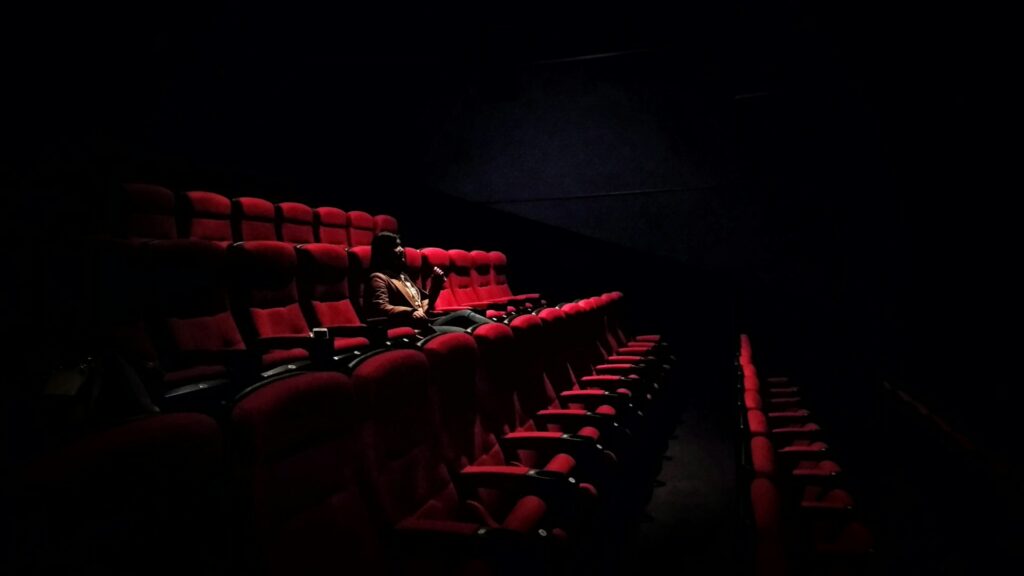How Artificial Intelligence Is Used in Movies, Video Games, and Personalized Experiences

How Artificial Intelligence Is Used in Movies, Video Games, and Personalized Experiences
Artificial intelligence has gone from being software used behind the scenes to being a major force in the entertainment industry. Artificial intelligence (AI) is changing the way people tell stories and get involved in them, whether it’s through immersive games, blockbuster movies, or personalized streaming suggestions. AI is pushing us toward a future that is more interactive, flexible, and creative. The entertainment industry is growing faster than ever before in 2025, which is the case.
Using AI in games to make smart worlds and experiences that change over time
Artificial intelligence is taking gaming to the next level, which is a field that has always been at the cutting edge of technology. The gameplay is no longer scripted and predictable; instead, players are now faced with changing environments where characters and stories are always changing.
Adaptive Non-Player Characters (NPCs) This means that NPCs don’t just use pre-set answers anymore. They can learn from what players do thanks to artificial intelligence, which makes fights more unpredictable and fun.
Procedural Content Generation: AI can make whole worlds, maps, and quests, so every time you play, you get a unique experience.
- Game developers are using artificial intelligence to find bugs and make sure the gameplay is fair much faster than they could do with manual testing.
- Voice and Gesture Recognition: AI-powered interactions let players talk to virtual characters in a natural way, making the line between real and virtual experiences even less clear.
- The point of this change isn’t just to make things more fun; it’s also to make games feel real and personal to each player.
In movies, AI is used for everything from writing scripts to making special effects.
Artificial intelligence is also changing the film industry, but not by replacing human creativity. Instead, it is being used to make more things possible on screen.
- Help with the screenplay: AI can look at past box office hits, audience trends, and story structures to suggest changes to the screenplay or come up with new plot ideas.
- Artificial intelligence makes difficult tasks like making actors look younger, creating realistic computer-generated characters, or simulating environments faster when it comes to visual effects (VFX). This means you won’t have to do months of manual work.
- Dubbing and Casting: AI can copy voices in many languages, which speeds up the release of movies around the world while still keeping them real.
- Studios use AI to look at audience data and figure out which types of movies, themes, or actors are most likely to do well at the box office.
- Because of these improvements, costs are going down, production times are getting shorter, and directors are free to take creative risks that they might not have been able to take before.
Personalized Entertainment Offers Another Option Along with Recommendations
Artificial intelligence is used in many ways in the entertainment industry, but personalization is one of the most interesting ones. Streaming services, music apps, and even news organizations use artificial intelligence to choose information that looks like it was made just for each user.
- Smart Suggestions: AI can make suggestions more relevant to viewers by keeping track of their viewing habits, search history, and even how often they pause or skip during the show.
- Creative Playlists and Smart Curation: Music services use AI to make playlists that can change based on the listener’s mood, time of day, or level of activity.
- Interactive Storytelling: AI is being used to make choose-your-own-adventure games and shows even better. This lets the stories change based on the choices the user makes.
- Artificial intelligence (AI) is used to improve personalized virtual reality (VR) content, which can be anything from concerts to live sports. This makes it possible for each user to see things in their own way.
At its core, AI makes sure that no two entertainment experiences are exactly the same.
The balance between creativity and morality
AI makes things better, but it also causes big problems. Could AI-driven scripting make movies less original? Hyper-personalized content could make “echo chambers” where people only see what algorithms think they want to see. Also, how can game developers make sure that adaptive AI doesn’t become too controlling or addictive?
The entertainment industry has a hard time finding a balance between creativity, ethics, and the growth of technology. To make sure that AI doesn’t hurt creative integrity but instead improves it, there must be clear rules, human oversight, and openness.
The Future of AI in the Entertainment Business
- Artificial intelligence promises even more revolutionary changes in the future:
- Films made by artificial intelligence that change both the story and the visuals based on how the audience reacts.
- Virtual concerts with AI-generated performers that can talk to people in real time.
- In gaming worlds, players and computer-controlled characters work together to make stories that never end and always change.
- Next will come streaming systems that are very personalized and can guess how users are feeling and suggest content before they even ask for it.
- People won’t be able to enjoy entertainment in the same way anymore. Instead, artificial intelligence will make it more interactive, immersive, and personal.
AI is changing more than just the entertainment industry. It’s also changing how people connect with stories, characters, and creative experiences. AI is making entertainment more interesting and flexible than it has ever been. This includes making video games smarter, making movies faster, adding highly personalized streaming features, and even virtual concerts. The most important thing is to make sure that this technology stays a tool that helps people be more creative instead of one that takes away their creativity.







